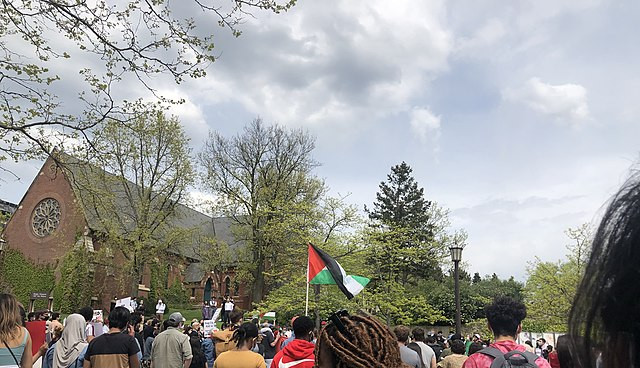Cornell University, a prestigious Ivy League institution, canceled classes for Friday due to alarming anti-Semitic threats made online against its Jewish student body. The university highlighted the "extraordinary stress" endured by the campus community in the preceding weeks as a driving factor behind the decision.
The individual behind these threats, 21-year-old student Patrick Dai, has been arrested and federally charged. Dai's threats were explicit, threatening to "shoot up" 104 West, the university's main kosher dining hall situated near the Cornell Jewish Center. Furthermore, the Justice Department reported that Dai did not stop at threats of shootings. He conveyed intentions to inflict physical harm, mentioning acts like "stabbing" and "slitting the throat" of Jewish males, with other vile threats aimed at Jewish females and babies.
Such threats emerged in a Cornell discussion forum where Dai reportedly expressed a desire for the death of Jewish individuals. Some of his posts were chilling, indicating plans to bring assault weapons to campus. Using IP addresses linked to these posts, federal investigators traced their origins to the Pittsford and Ithaca areas of New York, eventually leading them to Dai. Hailing from Pittsford, Dai, when interviewed by the FBI at the Cornell Police Department, conceded to authoring these threats.
Dai's actions reflect broader tensions simmering across U.S. campuses, stemming from the Israel-Hamas conflict. This conflict intensified suddenly on October 7, with a massive infiltration by around 2,500 Hamas militants into Israel from the Gaza Strip. This resulted in the tragic death of about 1,400 people, predominantly civilians. Such events have ignited fiery confrontations and debates across prominent U.S. universities, including the likes of Harvard, Stanford, and New York University, revolving around allegations of anti-Semitism, Islamophobia, and threats to free speech.
The issue of escalating anti-Semitic events is deeply concerning, with FBI Director Christopher Wray recently testifying about the U.S. witnessing "historic levels" of anti-Semitism. He highlighted a troubling statistic: while Jewish Americans account for only about 2.4% of the U.S. population, they represent nearly 60% of all religious-based hate crimes.
Cornell University's President, Martha Pollack, vehemently opposed any form of hatred, affirming, "We will not tolerate anti-Semitism at Cornell." She urged the community to not let their identity be overshadowed by the heinous acts of a few and underscored the essence of recognizing the positive contributions of many within the Cornell family.
Even with increased security post the arrest, unease lingers among students. Davian Gekman, a Cornell student, conveyed his anxiety about personal safety on campus, even pondering with his family the feasibility of staying at Cornell in the current climate. In light of the events, some students have implemented buddy systems for class commutes, while others have abstained from attending.
The events at Cornell and the broader U.S. sentiment have resonated internationally. The leaders of nine Israeli universities, through an open letter, voiced their apprehensions about U.S. campuses potentially evolving into "breeding grounds for anti-Israel and anti-Semitic sentiments."
With heightened security, Cornell resumed its regular schedule on Monday. The university is also exploring remote learning avenues for students still wrestling with safety concerns.




